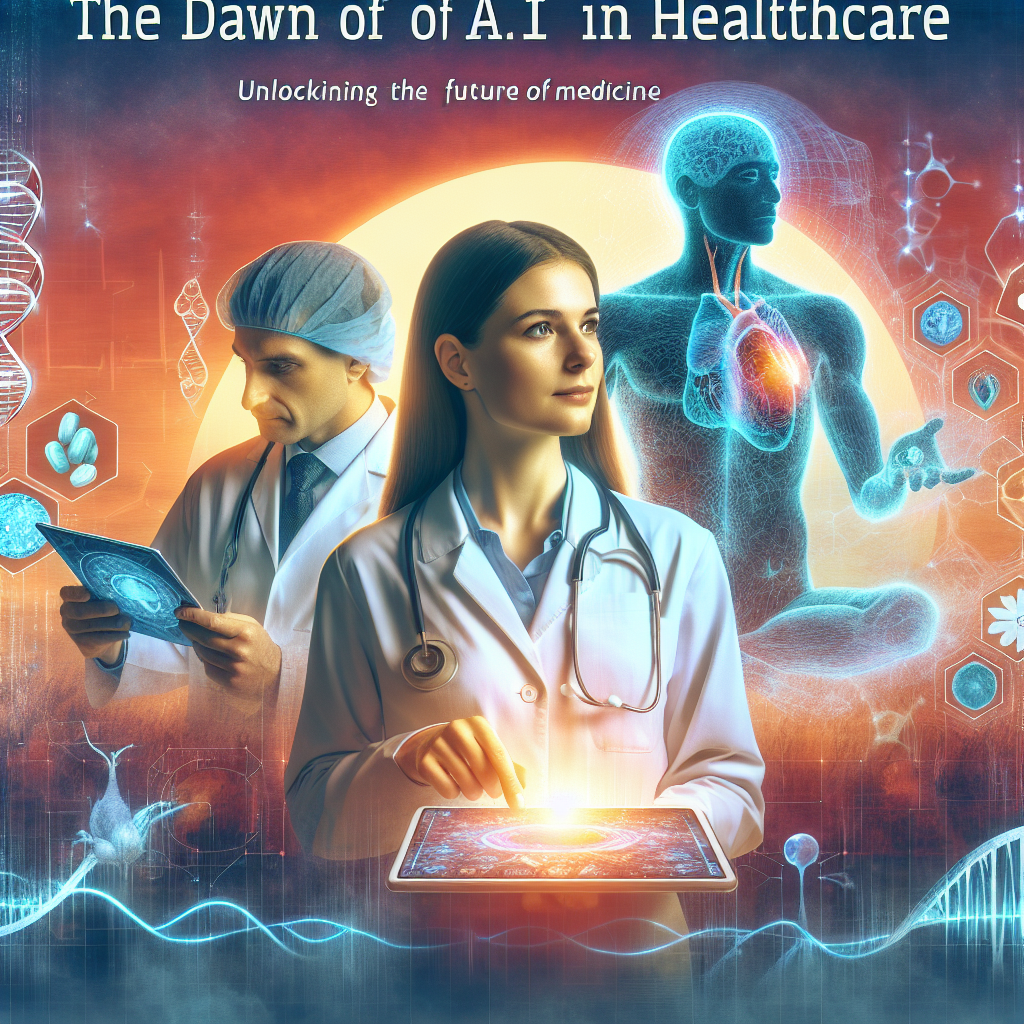In recent years, the integration of Artificial Intelligence (AI) in healthcare has revolutionized the way medical professionals diagnose, treat, and manage patient care. From predictive analytics to image recognition, AI has the potential to transform the future of medicine in unprecedented ways. This article will explore the dawn of AI in healthcare, unlocking the possibilities and challenges that come with this groundbreaking technology.
AI’s Role in Healthcare:
AI is increasingly being used in healthcare to analyze complex medical data, identify patterns, and make predictions that can aid in decision-making processes. Machine learning algorithms can analyze vast amounts of data, from medical records to genomic information, to provide personalized treatment plans for patients. This not only enhances the accuracy and efficiency of diagnoses but also helps healthcare providers deliver targeted interventions that improve patient outcomes.
One of the key areas where AI is making a significant impact is in medical imaging. AI algorithms are being developed to interpret radiological images such as X-rays, MRIs, and CT scans with a level of accuracy that rivals, and in some cases surpasses, that of human radiologists. This has the potential to speed up the diagnosis process, reduce errors, and improve patient care. Additionally, AI is being used to assist in the early detection of diseases such as cancer, enabling treatment to begin at a stage when it is most effective.
Challenges and Ethical Considerations:
While the potential benefits of AI in healthcare are vast, there are also challenges and ethical considerations that need to be addressed. One of the main concerns is the potential for bias in AI algorithms, which can lead to disparities in healthcare outcomes among different patient groups. To mitigate this, it is crucial to ensure that AI systems are trained on diverse and representative datasets.
Another challenge is the transparency and interpretability of AI algorithms. Healthcare professionals need to understand how AI arrives at its decisions in order to trust and effectively use these tools. Additionally, maintaining patient privacy and confidentiality is paramount when utilizing AI in healthcare, as sensitive medical data must be protected from security breaches and unauthorized access.
The Future of AI in Healthcare:
Despite these challenges, the future of AI in healthcare holds immense promise. As technology continues to advance, AI systems will become even more sophisticated in their ability to analyze data and generate insights. This will enable healthcare providers to deliver more personalized, precise, and efficient care to patients.
Furthermore, AI has the potential to revolutionize drug discovery and development, by identifying new treatment targets and predicting drug responses based on genomic and clinical data. This could lead to the development of more effective and targeted therapies for a range of diseases.
Conclusion:
The dawn of AI in healthcare marks a new era in medicine, where technology is driving innovation and transforming the way healthcare is delivered. By harnessing the power of AI, healthcare providers can unlock new possibilities for improving patient outcomes, increasing efficiency, and advancing medical research. While there are challenges and ethical considerations to navigate, the potential benefits of AI in healthcare are undeniable. As we continue to explore the capabilities of this technology, it is essential to prioritize patient safety, privacy, and equity to ensure that AI in healthcare truly unlocks the future of medicine.










